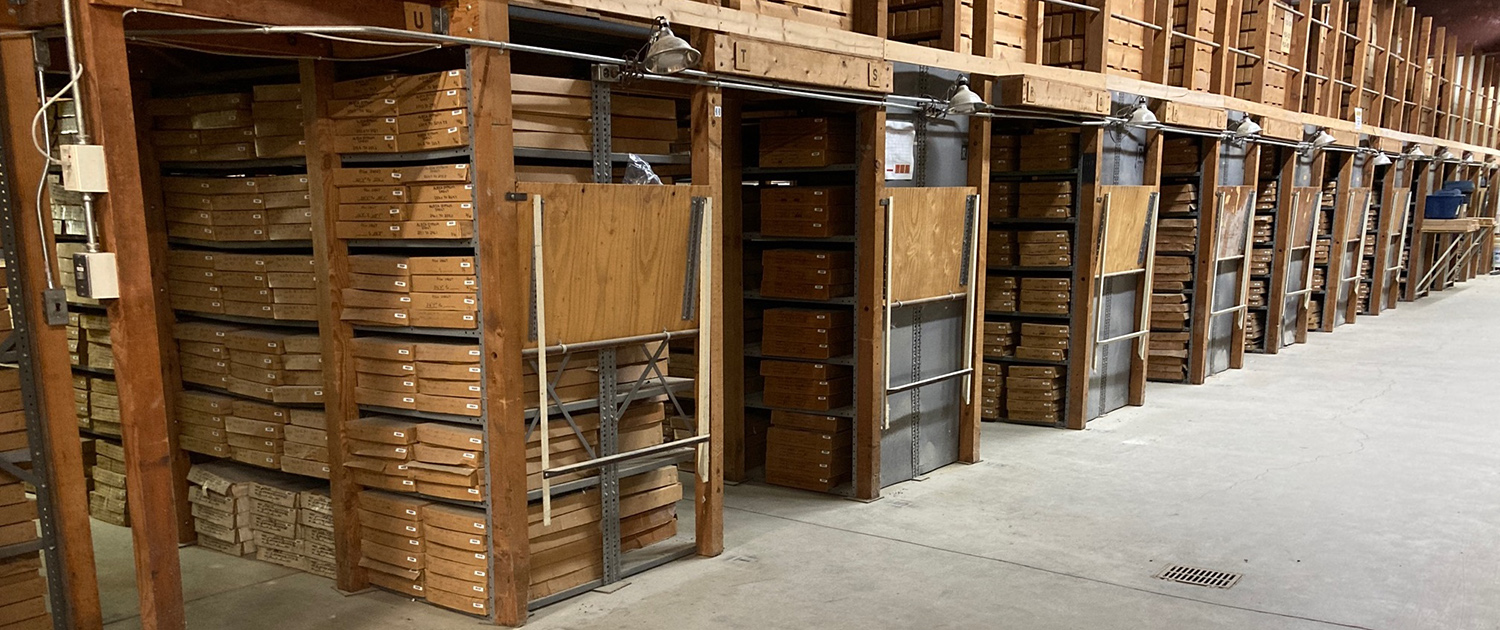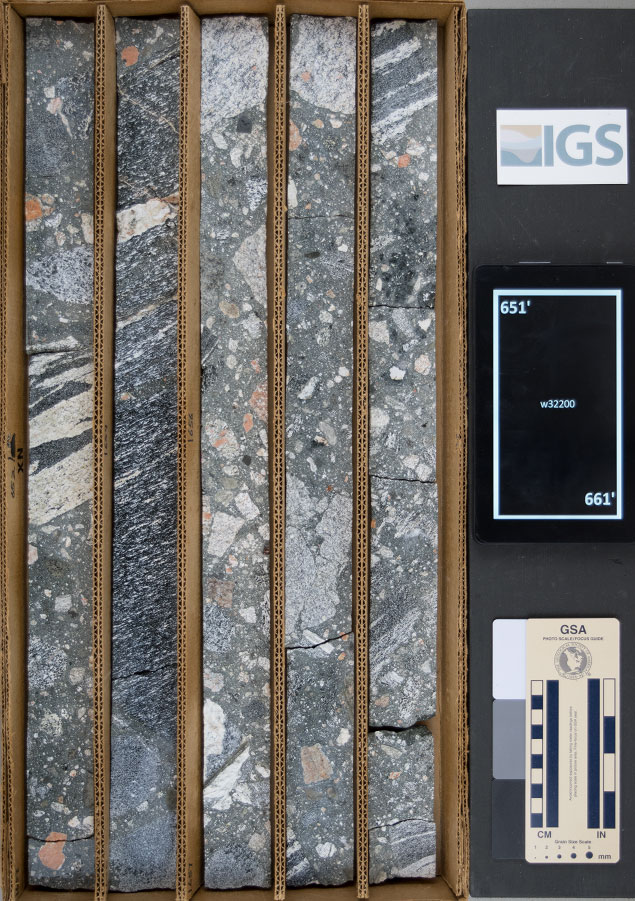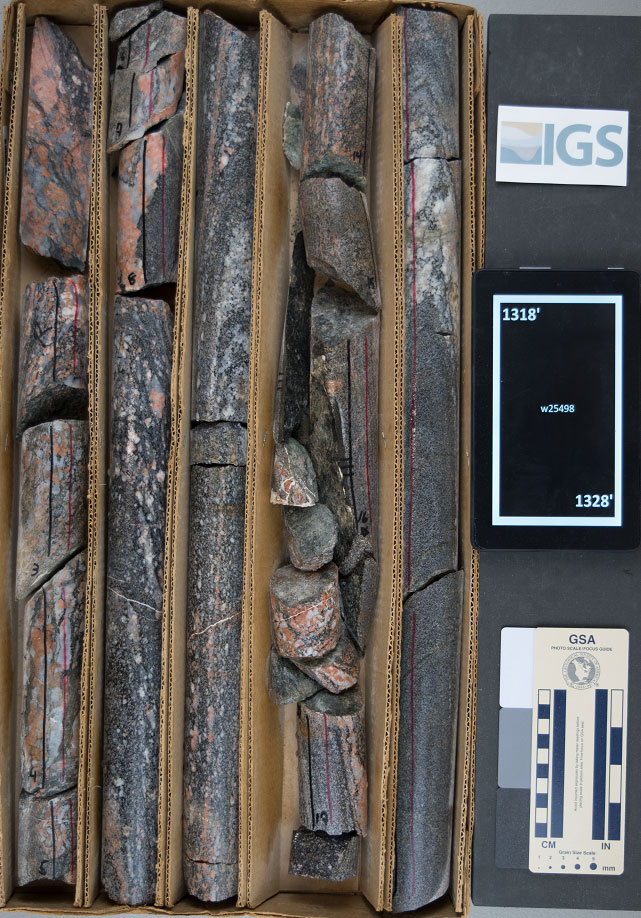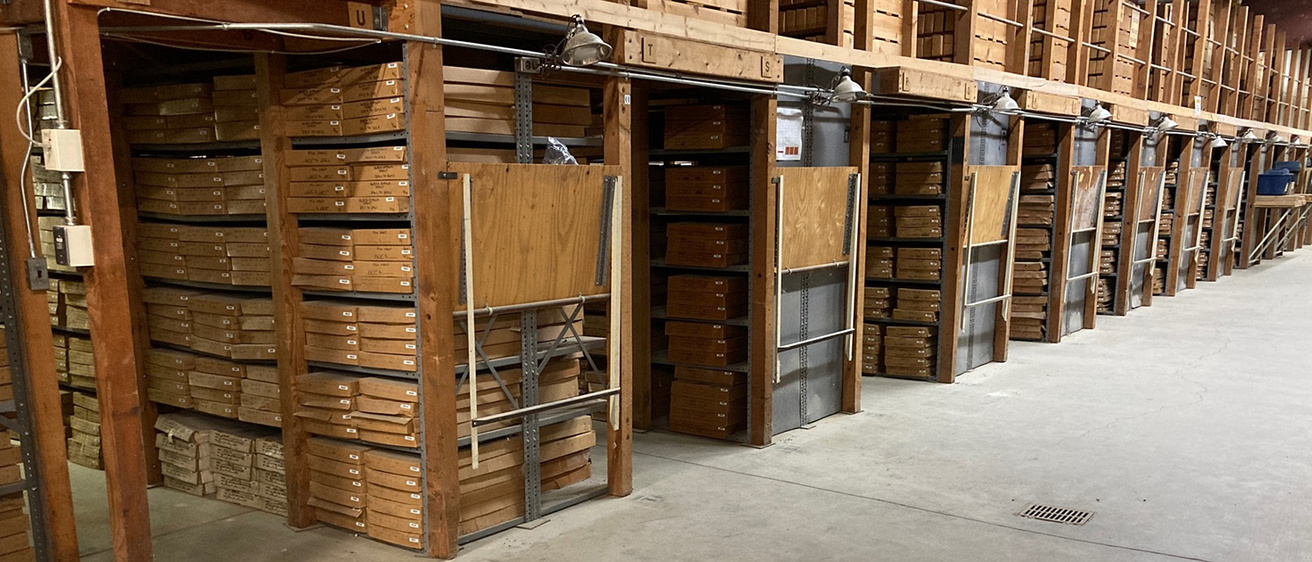Rick Langel, Geologist , Iowa Geological Survey, University of Iowa
What does a meteorite impact look like? What do the oldest rocks in Iowa look like? What do the rocks that provide my water look like? Those questions are some of the more common that I’ve been asked. Fortunately, the rock core collection stored in the IGS’ Rock Library has the answers.

Rock cores are solid, continuous cylindrical sections of rock collected when precise, detailed geologic information is required at a location. Like the final scene of Raiders of the Lost Ark, the rock core stored at the IGS’ repository (more commonly called the ‘Rock Library’) are stored in cardboard boxes place on rows and rows of shelving in a warehouse. Until recently the only way to view the core was to visit the Rock Library, which limited access to the collection.
That changed in 2016 with assistance from the USGS National Geological and Geophysical Data Preservation Program (NGGDPP). Funding assistance from two NGGDPP grants allowed the IGS to hire numerous students to photography the core and create a website for the photos. That began the process, which at times was slow and painstaking, of inventorying and photographing every core box in the Rock Library.

After many years, we have essentially photographed the entire core collection. Just under 15,000 core boxes from over 1,100 boreholes have been photographed. Laid end-to-end, the core in the boxes would stretch for over 27 miles. And, the best part, all the photographs are available 24/7 at IGS GeoCore (https://www.iihr.uiowa.edu/igs/geocore/home). So they can be viewed anywhere and anytime.
Check out IGS GeoCore if you have questions about what a certain type of rock looks like. You may be able to find your answer. But if you can’t find your answer, let us know and we’ll be happy to help answer the question. In the meantime, we’ll be finishing photographing the last few cores in the collection.

